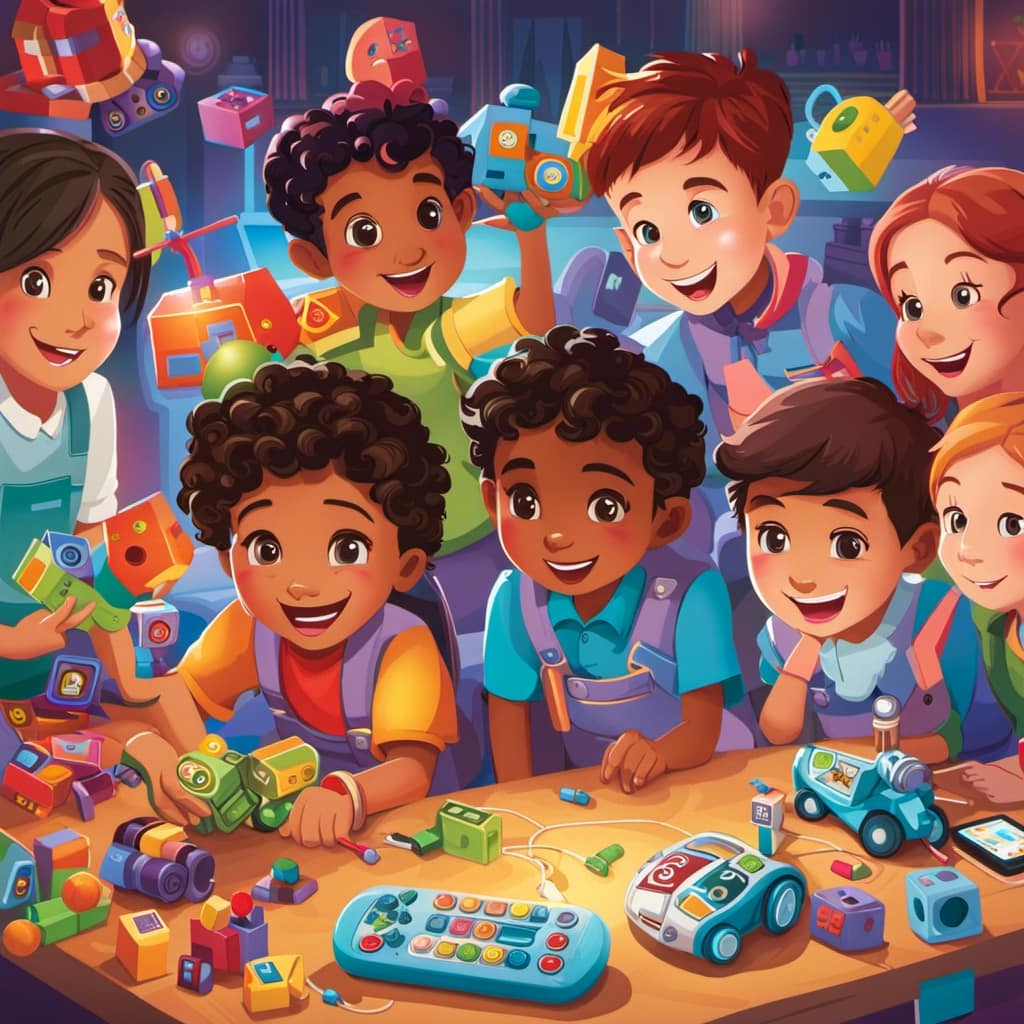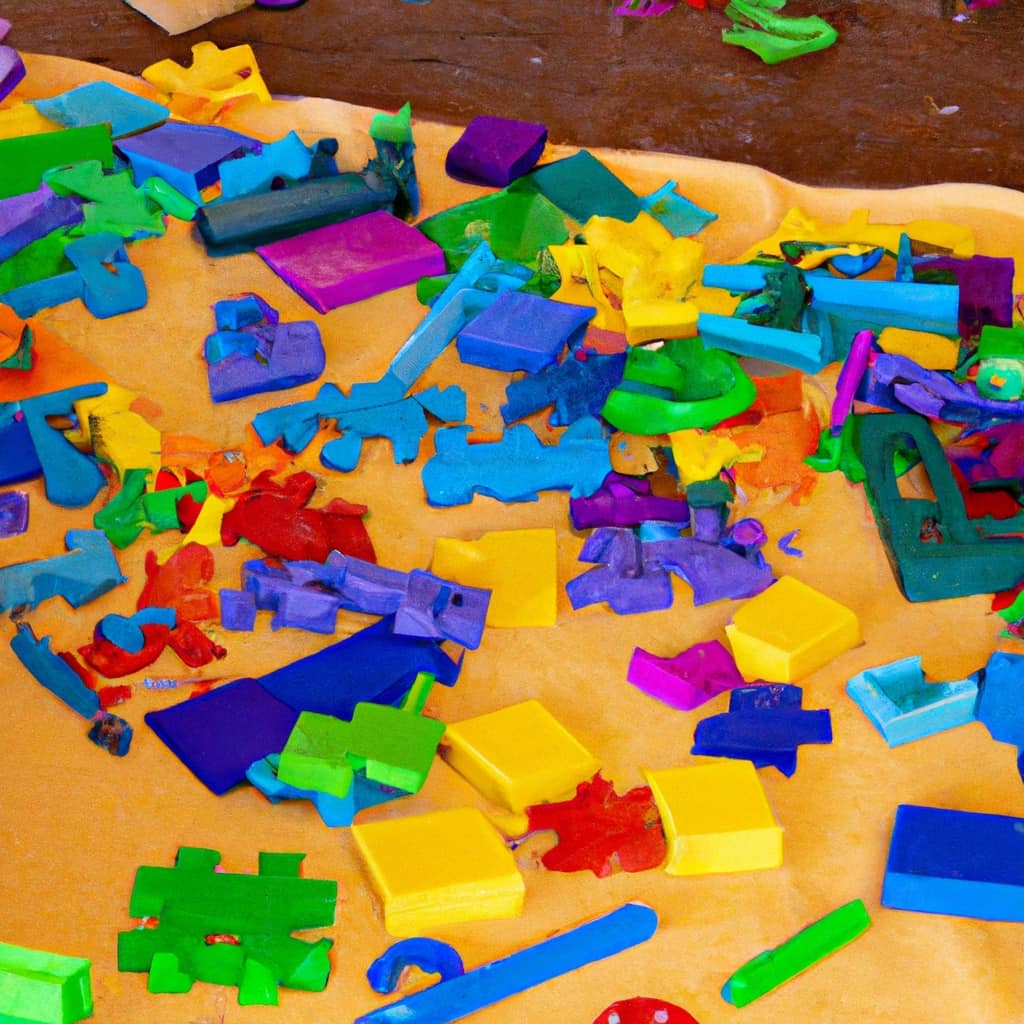I have always been fascinated by the concept of decentration, especially its role in promoting cognitive development and fostering empathy towards others.
Decentration, the ability to consider multiple perspectives and dimensions, goes beyond egocentric thinking, allowing for flexible thinking and abstract reasoning. It not only improves problem-solving and critical thinking skills but also enhances social interactions and empathy.
In this article, we will explore the definition and role of decentration, its importance in cognitive development, and the long-term benefits it offers in understanding others.
Key Takeaways
- Decentration is the ability to consider multiple dimensions or perspectives in thinking, moving beyond egocentric thinking and considering the viewpoints of others.
- Decentration promotes flexible thinking, alternative viewpoints, and abstract reasoning, enhancing problem-solving skills and critical thinking.
- It plays a crucial role in cognitive advancement and expanding thinking abilities, promoting a comprehensive understanding of the world.
- Perspective taking is closely related to decentration in child development, requiring considering multiple viewpoints and developing empathy and critical thinking skills.
The Definition and Role of Decentration
Decentration is the ability to consider multiple dimensions or perspectives in thinking, and it moves beyond egocentric thinking to consider the viewpoints of others. It plays a vital role in problem solving and enhancing social interactions.
When individuals practice decentration in problem solving, they are able to shift their attention and consider multiple factors simultaneously. This promotes flexible thinking and alternative viewpoints, leading to more effective problem-solving skills.
Additionally, decentration enhances social interactions by allowing individuals to understand and empathize with others’ thoughts and emotions. By considering different perspectives, individuals can communicate more effectively, resolve conflicts, and build stronger relationships.

Decentration in problem solving and social interactions is crucial for cognitive growth and fostering a more inclusive and understanding society.
The Importance of Decentration in Cognitive Development
Considering multiple perspectives in cognitive development is crucial for expanding thinking abilities and fostering a comprehensive understanding of the world.
Decentration plays a significant role in promoting empathy and social skills by encouraging individuals to move beyond egocentric thinking and consider the viewpoints of others.
It also enhances problem-solving and critical thinking skills by allowing individuals to shift their attention and consider multiple factors simultaneously.
The role of decentration in problem solving and critical thinking is evident as it promotes flexible thinking, alternative viewpoints, and abstract reasoning.
By considering different possibilities and alternatives, individuals with decentration can approach challenges from various angles, leading to improved problem-solving abilities and creative thinking.

Through decentration, individuals can develop a more inclusive mindset, enhance communication skills, and gain a better understanding of others’ thoughts and emotions.
Perspective Taking and Its Connection to Decentration
Engaging in perspective taking activities, such as role-playing or discussing different viewpoints, helps me develop a more inclusive mindset and understand others’ thoughts and emotions. Perspective taking is closely related to decentration in child development, as both involve moving beyond egocentric thinking and considering multiple viewpoints. It requires the ability to understand and empathize with others, which is connected to the theory of mind. By engaging in perspective taking, I can develop a deeper understanding of others’ experiences and foster empathy. This not only enhances my social interactions but also promotes critical thinking and problem-solving skills. By considering different perspectives, I can approach challenges from various angles and think more creatively. This connection between perspective taking and decentration is crucial for building an inclusive society that values empathy development and understanding others’ thoughts and emotions.
| Perspective Taking and Decentration | Empathy Development | Theory of Mind Connection |
|---|---|---|
| Perspective taking involves considering multiple viewpoints. | Perspective taking helps develop empathy. | Perspective taking is connected to the theory of mind. |
| Decentration moves beyond egocentric thinking. | Engaging in perspective taking promotes empathy development. | Perspective taking requires understanding others’ thoughts and emotions. |
| Theory of mind is involved in the development of perspective taking. | Perspective taking enhances social interactions. | Perspective taking promotes a comprehensive understanding of others. |
Cultural Influences on Decentration
Growing up in a multicultural environment, I have witnessed how cultural differences shape children’s ability to perceive and interpret the world around them. Cultural diversity plays a significant role in perspective taking and the development of decentration skills.
Here are four key ways in which cultural influences impact children’s ability to consider multiple perspectives and think beyond their own:
-
Cultural norms and values: Different cultural backgrounds have distinct norms and values that influence how children perceive and understand others’ perspectives.
-
Communication styles: Cultural diversity brings varying communication styles, which can affect children’s ability to engage in effective perspective taking.

-
Belief systems: Cultural beliefs and practices shape children’s understanding of different viewpoints and their willingness to consider alternative perspectives.
-
Exposure to diversity: Being exposed to diverse experiences and cultures allows children to broaden their understanding of the world and enhances their ability to consider multiple perspectives.
Understanding these cultural influences is vital for promoting inclusive social interactions and developing children’s decentration skills from a cross-cultural perspective.
Parental Influence on the Development of Decentration
As a parent, I have the ability to positively influence my child’s development of decentration by modeling flexible thinking and encouraging them to consider multiple perspectives. By demonstrating open-mindedness and considering various viewpoints, I can teach my child the importance of looking beyond their own perspective. Engaging in activities that promote perspective-taking, such as role-playing or discussing different viewpoints, can also foster decentration skills. Additionally, exposing my child to diverse experiences and cultures helps broaden their understanding of the world and encourages them to consider alternative perspectives. By actively fostering empathy and critical thinking, I can support their development of decentration. The table below highlights strategies for parents to foster decentration skills.
| Strategies for Parents to Foster Decentration Skills |
|---|
| Model flexible thinking and open-mindedness |
| Encourage consideration of multiple perspectives |
| Engage in activities that promote perspective-taking |
| Expose children to diverse experiences and cultures |
| Foster empathy and critical thinking |
The Long-Term Benefits of Decentration in Understanding Others
In the previous subtopic, we discussed the important role of parental influence in the development of decentration skills in children. Now, let’s explore the long-term benefits of decentration in understanding others.
-
Enhancing empathy skills: Decentration allows individuals to consider multiple perspectives, which in turn enhances their ability to empathize with others. By understanding different viewpoints, individuals become more sensitive and compassionate towards others’ thoughts, emotions, and experiences.

-
Improving social interactions: Decentration plays a crucial role in promoting effective and meaningful social interactions. It allows individuals to engage in open-minded conversations, actively listen to others, and consider their opinions. This improved understanding of others’ perspectives leads to better communication, cooperation, and conflict resolution skills.
Frequently Asked Questions
How Does Decentration Impact Problem-Solving Skills in Children?
Decentration enhances problem-solving skills in children by promoting cognitive flexibility and alternative thinking. It fosters creativity and the ability to consider different possibilities. Education plays a crucial role in nurturing these skills and expanding children’s problem-solving abilities.
What Are Some Practical Ways to Promote Decentration in Children?
To promote decentration in children, I can foster empathy and develop critical thinking. By encouraging open-mindedness and considering multiple perspectives, children can understand and empathize with others’ thoughts and feelings.
How Does Cultural Diversity Influence the Development of Decentration?
Cultural diversity significantly influences the development of decentration, enhancing cognitive growth. Cultural influences shape children’s perspectives and ability to consider multiple viewpoints, fostering a more inclusive mindset and promoting understanding of others.
Can Decentration Be Improved in Individuals Who Have Not Developed It During Childhood?
Decentration can be improved in adults through techniques that foster perspective-taking, such as engaging in diverse experiences and practicing open-mindedness. Parental modeling and support also play a crucial role in enhancing decentration skills.
Are There Any Potential Drawbacks or Limitations to the Concept of Decentration?
There are potential drawbacks and limitations to the concept of decentration. It may not be easily attainable for everyone, and cultural factors can influence its development. Additionally, it may not always lead to accurate understanding of others.

Conclusion
In conclusion, the power of decentration can’t be underestimated in enhancing cognitive growth and understanding others.
By expanding our thinking beyond ourselves, considering multiple perspectives, and embracing alternative viewpoints, we unlock a world of possibilities.
Like a kaleidoscope, decentration allows us to see the intricate patterns of thoughts and emotions that shape our interactions with others.
It is through this lens that we gain a comprehensive understanding of the world, develop problem-solving skills, and foster inclusive social relationships.
Let us embrace the power of decentration and unlock the full potential of our minds.











